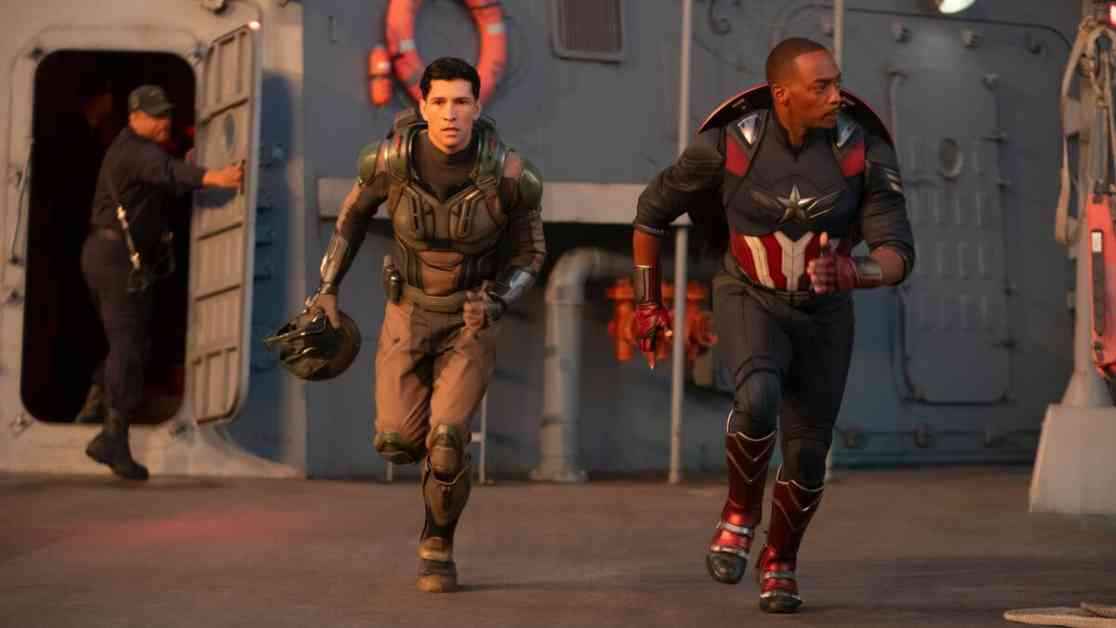In Marvel’s latest installment, “Captain America: Brave New World,” the transition of the iconic mantle to Sam Wilson, played by Anthony Mackie, has sparked conversations about the future of the Marvel Cinematic Universe. The film explores the challenges of introducing a new Captain America while honoring the legacy of the original character, played by Chris Evans. With the pressure to recapture audience interest and box office success after the monumental “Avengers: Endgame,” Marvel Studios faces a daunting task in reshaping the beloved franchise.
Legacy of Captain America
The character of Captain America, first introduced in Marvel Comics in 1940 as Steve Rogers, has become a cornerstone of the Marvel universe. Nate Moore, a producer on the film, emphasizes the significance of Captain America in the superhero genre, describing the character as a symbol of hope and inspiration. The decision to pass the shield to Sam Wilson highlights Marvel’s commitment to preserving the essence of Captain America’s ideals, even as the character undergoes a transformation.
As Chris Evans concluded his portrayal of Captain America in “Endgame,” the transition to Anthony Mackie’s character, Sam Wilson, marks a new chapter in the franchise. The decision to have a Black actor assume the role of Captain America adds a layer of cultural significance to the narrative, reflecting a broader representation of America and its values. The exploration of themes of identity, responsibility, and legacy in “The Falcon and the Winter Soldier” sets the stage for the evolution of Captain America in “Brave New World.”
Strategic Reset and Box Office Prospects
With Marvel’s recent struggles to replicate the success of previous blockbuster hits, “Captain America: Brave New World” represents a strategic reset for the franchise. The film’s reported budget of $180 million and projected opening weekend earnings of $80-95 million signal a cautious approach to rebuilding audience interest. Daniel Loria, a senior vice president at Boxoffice Co., acknowledges the studio’s efforts to realign its vision and engage viewers with a fresh perspective on the Marvel universe.
Director Julius Onah’s vision for the film as a reset of the Marvel franchise encapsulates the sense of uncertainty and reinvention. By drawing parallels to literary works like Aldous Huxley’s “Brave New World,” the film invites audiences to embrace the unknown and explore new narratives within the Marvel Cinematic Universe. The interconnected storytelling across Marvel films underscores the importance of “Brave New World” in setting the stage for future releases, such as “Thunderbolts,” slated for May.
The decision to reimagine Captain America with a new actor reflects a trend in superhero storytelling, as seen in multiple iterations of characters like Spider-Man and Batman. Lilly Goren, co-editor of “The Politics of the Marvel Cinematic Universe,” highlights the opportunity for Marvel to evolve its characters while maintaining continuity and relevance in a changing cultural landscape. The introduction of a Black Captain America carries profound implications for representation and inclusivity, resonating with audiences seeking diverse and authentic portrayals on screen.
As Marvel Studios navigates the challenges of reinvigorating its flagship franchise, the success of “Captain America: Brave New World” hinges on its ability to captivate audiences with compelling storytelling and resonant themes. The evolution of Captain America from a superhuman to a symbol of empathy and humanity reflects a broader shift in superhero narratives toward authenticity and relatability. The journey of Sam Wilson as the new Captain America embodies the spirit of hope and inspiration that defines the character, ensuring that the legacy of Captain America endures in the hearts of audiences worldwide.


